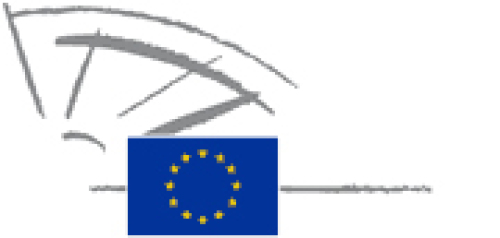This page offers an overview of the European Union’s most important institutions and provides links.

European Parliament
The European Parliament is the world’s largest multinational parliament. It has 705 members from 27 countries currently representing around 447 million EU citizens. The European Parliament has three main powers: to legislate, adopt a budget and to oversee other EU institutions. Together with the Council of the European Union and the European Commission, the European Parliament constitutes an “institutional triangle” which draws up policies and adopts legal regulations which are effective throughout the entire EU.

European Commission
Within the institutional system of the EU, the European Commission is the main executive body: it proposes new legal regulations, political measures and action programmes, and it is responsible for the implementation of the decisions made by the Parliament and the Council. It ensures the correct application of EU law in the member states and represents the EU internationally.

Council of the European Union
Together with the European Parliament and the European Commission, the Council of the European Union forms the “institutional triangle” of the European Union. It is one of the EU’s decision-making institutions. Depending on the topics, meetings of the relevant ministers of the member states are held within the framework of the Council of the European Union.
The Presidency of the Council rotates between the member states every six months. For the second half of 2024, Hungary holds the Presidency of the Council, and Poland will follow for the first six months of 2025.

European Council
The European Council should not be confused with the Council of the European Union. In the European Council, the heads of state and government of the EU member states, the President of the European Council and the President of the European Commission meet. The European Council defines the general political direction and priorities of the European Union.
The heads of state and government elect the President of the European Council. His or her term of office is 2 ½ years and s/he can be re-elected once.

Court of Justice of the European Union
The Court of Justice of the European Union was established in 1952 by the Treaty of Paris. It reviews the legality of the acts of the institutions of the European Union, ensures that the Member States comply with EU law and interprets EU law.

European Court of Auditors
The European Court of Auditors examines whether all income and expenditure of the European Union is legitimate and in accordance with EU law, and it monitors whether the EU’s budget plan is implemented economically.

European Ombudsman
The European Ombudsman investigates complaints about maladministration by EU institutions and bodies. S/he has the task of mediating between the citizens and the EU bodies.
If you want to find out about the possibilities of lodging a complaint, you will find all relevant information, including a complaints form, on the webpages of the European Ombudsman.

European Data Protection Supervisor
The European Data Protection Supervisor monitors and ensures the protection of personal data and privacy when the Union’s institutions and bodies process personal information. The position was created in 2001.

European Economic and Social Committee
The European Economic and Social Committee (EESC) is a consultative body to the European institutions. Its members represent employers, workers and civil society organisations. These may be trade unionists, farmers, consumers and representatives of social, occupational, economic and cultural organisations. The EESC presents their point of view to the Commission, the Council and the European Parliament by adopting opinions.

Committee of the Regions
The Committee of the Regions (CoR) is another advisory body representing local and regional authorities in the EU. Its mission is to involve the opinion of local and regional interests in the EU legislation process. The CoR must be consulted in all matters relating to local and regional government, for example regional policies, environment, education and transport.
